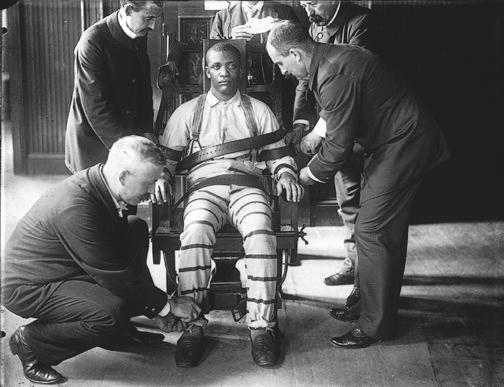When asked to think of a debatable public issue that interested me, the death penalty immediately came to mind. I have never had a strong opinion on the issue of the death penalty. I’d often been asked what I believed, but had never given it much thought and quite frequently gave different answers. One day I’d be in a particularly bad mood and was all for the death penalty. And sooner rather than later someone would ask the same question, I would be feeling more compassionate and would be completely against it. I didn’t really matter to me, I was fickle at best. As cliché as it is going to sound, it was the summer reading book that made my ambivalence disappear.
Before reading Sister Helen Prejean’s book the Death of Innocents, I had never taken the time or made the effort to really decide what I felt in regards to the death penalty. There had never been a face or story relating to the issue; it was just something that didn’t effect me, something that I didn’t really care about. And while I have not transformed and become a radical activist, I now have a definitive answer when someone asks me if I agree with the death penalty, “no.” It was my first thought when I began to ponder writing a blog on a public issue. I first thought of the death penalty on a large scale, and was intimidated to think of writing a blog on such a wide range of information. Narrowing the topic down to racism in the death penalty made it a much more manageable task.
I chose to do my blog on racism because I feel it was a debatable aspect of the death penalty. I knew that people would have an opinion on the issue and that I would learn a lot—I did. Before I began researching for my blog the only source I had gotten information from was my summer reading; I found there were limitless supplies of statistics and arguments about the possible racist death penalty. I have learned so much, and as a result, have become much more passionate about the topic. The more I learn, the more confused I become that the issue is not better known. I found it astounding to read the statistics and wonder how this injustice continues to fly under the radar.
When I first approached the topic I knew little, my argument showed this. But as I read and became more versed in the technical jargon, and as my anger grew I developed a better argument. Knowledge is the best tool to sharpening an argument about an issue, and the wealth of reading materials on the internet made this an easy task. As I took in information and continued to write, I made more concise points and expressed what I was trying to say more effectively. At first I was unsure of my argument, and how to get my point across, this got better as time passed and my research continued.
I also believe that using different modes of discourse helped me to craft a more compelling argument. The aesthetics of the blog page: the colors, pictures, font, and videos, are all a pathetic appeal to emotion. I used them to try and set a darker, more serious tone—the death penalty is not a laughing matter. The picture specifically is an appeal to emotion; it is not easy to look at a picture of someone just before they are killed. Later though, I used statistical information and was able to make a more compelling argument, one that along with the emotional side, would help to change some peoples minds.
As I wrote and learned more on the topic, I became better about saying what I wanted to say, and essentially, at making more sense with a better focused, and more compelling argument.


